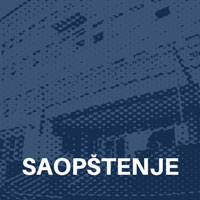On the verdict for the rape of a Bosniak women in Brčko
 On September 19, 2019, the Higher Court in Belgrade sentenced defendant Nikola Vida Lujić to eight years in prison for raping a Bosniak woman in Brčko in June 1992. The Humanitarian Law Center (HLC) considers that the proceeding in this case was conducted very effectively, that the injured party had adequate protection during her testimony, and that the sentence imposed was fair and commensurate with the gravity of the act performed.
On September 19, 2019, the Higher Court in Belgrade sentenced defendant Nikola Vida Lujić to eight years in prison for raping a Bosniak woman in Brčko in June 1992. The Humanitarian Law Center (HLC) considers that the proceeding in this case was conducted very effectively, that the injured party had adequate protection during her testimony, and that the sentence imposed was fair and commensurate with the gravity of the act performed.
The Office of the War Crimes Prosecutor filed an indictment on September 12, 2018, against “Red Berets” unit member Nikola Vida Lujić, because on June 20, 1992, in Brčko, with two other unknown soldiers, dressed in camouflage uniform and armed with a gun, he entered the house of the injured party, i.e. the Bosniak woman, loaded his gun in front of her, robbed her of gold and money, and ordered her to go with him to a room where he raped her twice. Due to the severe mental pain that she suffered on that occasion, the injured person suffered a post-traumatic stress disorder for which she has been receiving treatment for many years now.
In the course of the proceeding, the court gave credence to the testimonies of the injured party and the witnesses, assessing that their statements were convincing, complementing and confirming each other, while the defence of the accused, who claimed throughout the proceedings that the trial was a plot against him because of his nationality, was assessed by the court as unfounded.
In deciding on the sentence, the court found that there were no mitigating circumstances for the defendant, while it assessed as aggravating circumstances his earlier conviction for a similar crime, as well as the recklessness he had shown in the commission of the offence. Namely, after raping the injured party, the accused, by his facial mimicry, urged the other soldier to do the same, which the latter refused. The court considered that the defendant’s act was particularly humiliating for the injured party, and that the perpetrator’s only purpose was to hurt her dignity.
This is one of the few war crimes trials that have been conducted very effectively, as it was completed in just nine months; also, the President of the trial chamber acted very decisively regarding the testimony of the injured party by forbidding certain questions to be asked by the accused and his defence counsel, which the President of the trial chamber estimated could lead to a re-traumatisation of the injured party. Unlike in some of the earlier proceedings (e.g. Skočić, Ranka Tomić), the HLC considers that in this proceeding the court correctly assessed the existence of aggravating circumstances for the accused and pronounced a sentence appropriate to the gravity of the offence and its attendant consequences.






